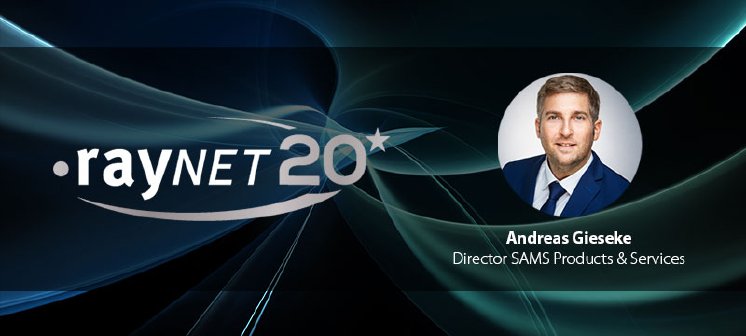Andreas Gieseke, who heads the SAM product and service division at Raynet, has been active in the application lifecycle business for more than 20 years and has been involved in asset management for 10 years.
Who is Raynet and what does the company do?
Raynet is a leading provider in the field of Application Lifecycle Management, which means that we offer products and also services in this area and are celebrating our 20th anniversary this year. We started off with packaging which is still one of our core businesses today. But we always had our own tools in this area to support our services and were more of a "hidden champion", which means that we did contract development for other manufacturers, such as Symantec or Flexera. We have gradually expanded this, so that we now offer our products and services across the entire application lifecycle management. For example, we have a comprehensive software management solution to deploy operating systems, to deploy or patch software accordingly, we have an enterprise solution in software packaging and we have an inventory scanner.
You mentioned this earlier, RayVentory offers several ways to inventory the IT landscape. Which one is preferred and which possibilities does it offer?
Unfortunately, there is no simple answer to this question. Basically we have a classic agent-based inventory method, but we also offer inventory methods from the field of remote inventory. We always make decisions on a case-by-case basis or device-specifically. This is then agreed with the customer at the beginning of a project and documented in a framework. E.g. for the classical client inventory, we offer an agent for Group Policy Inventory and in the area of server inventory, the ZeroTouch technology. This is characterized by the fact that it is completely remote, we also have very few prerequisites and also no influence on the infrastructure and therefore no impact that we must expect.
Since January 2019 the licensing for Java has changed fundamentally. How can you at Raynet support your customers in preparing a correct licensing or auditing?
This is a big and exciting topic. From our point of view, it is the same as always that we first need reliable data, which we prepare accordingly, so that we have a complete installation report for Java. We record the usage, which is quite elementary, that means that we make use of classical metering. But we also collect information from the Oracle Trace and so we can work out the usage and finally derive compliance or optimization measures from it.
Which customers, for example, already use your solution?
Our customers are service providers, such as Bechtle and T-Systems, tool providers, such as Flexera or Aspera, interestingly enough because they also have their own inventory tools. License consultants like Livingston, Deloitte or enterprise customers like Bertelsmann, Roche, HP or Adobe. Adobe is currently on its way to inventory the 300,000th server, which is relatively exciting at this point. These are the typical customer spectra.
What does your roadmap for the product portfolio look like and are there specific market developments to which you orient yourself?
We launched a portal 2 weeks ago, which is now being further developed. We are also working on a next generation of the entire product. We are working on an intelligent scanner. Today it is already automated but still requires manual inputs. And in the future, this scanner will automatically perform discovery, inventory and then automatically scan the Oracle server, if it detects an Oracle server.
Let's take a cautious look into the future, what do you think will be the biggest challenges in the next 2-3 years?
So clearly, the trend is going towards the cloud, which is also the topic here at SAMS. We perceive industry 4.0 as a huge topic, which we are working on with Roche at this time, because the level of maturity in industry is perhaps comparable to the classic IT we had 20 years ago. In the past it was easy, the area was isolated, it is opening up now. Office IT and Industry IT are merging. This, of course, results in corresponding security issues and this is where we come in.
To come back to SAMS again, what convinced you to be a business partner at SAMS and what exactly or what benefit do you hope for?
Clearly the customer exchange. We live from the fact that we get feedback from the market, that we can develop customer-oriented and that is simply the strength that SAMS offers: to discuss such topics with the experts here in compressed form.
We are of course delighted to have you as a partner at SAMS and would like to take this opportunity to thank you for the short interview.



